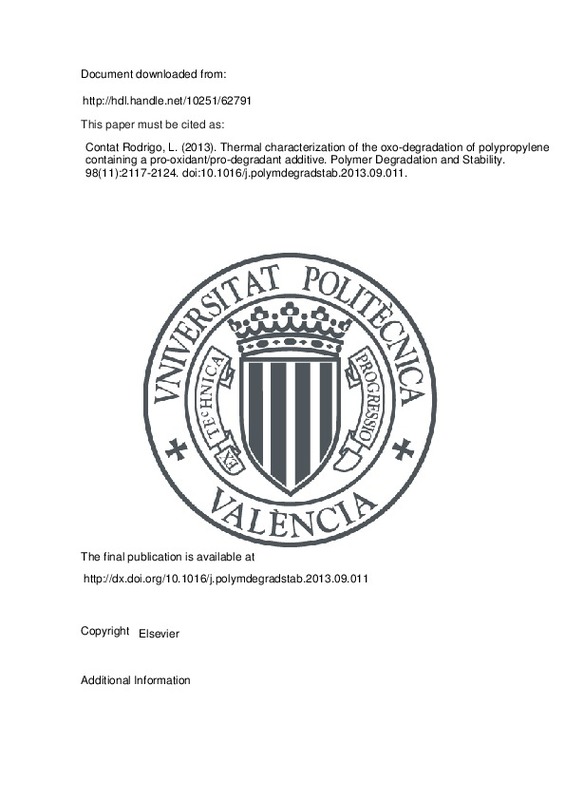JavaScript is disabled for your browser. Some features of this site may not work without it.
Buscar en RiuNet
Listar
Mi cuenta
Estadísticas
Ayuda RiuNet
Admin. UPV
Thermal characterization of the oxo-degradation of polypropylene containing a pro-oxidant/pro-degradant additive
Mostrar el registro completo del ítem
Contat Rodrigo, L. (2013). Thermal characterization of the oxo-degradation of polypropylene containing a pro-oxidant/pro-degradant additive. Polymer Degradation and Stability. 98(11):2117-2124. https://doi.org/10.1016/j.polymdegradstab.2013.09.011
Por favor, use este identificador para citar o enlazar este ítem: http://hdl.handle.net/10251/62791
Ficheros en el ítem
Metadatos del ítem
| Título: | Thermal characterization of the oxo-degradation of polypropylene containing a pro-oxidant/pro-degradant additive | |
| Autor: | ||
| Entidad UPV: |
|
|
| Fecha difusión: |
|
|
| Resumen: |
The oxo-degradation process of polypropylene (PP) samples containing different concentrations (4% and 10% w/w) of pro-oxidant/pro-degradant additive Envirocare AG1000C was investigated under accelerated test conditions. ...[+]
|
|
| Palabras clave: |
|
|
| Derechos de uso: | Reserva de todos los derechos | |
| Fuente: |
|
|
| DOI: |
|
|
| Editorial: |
|
|
| Versión del editor: | http://dx.doi.org/10.1016/j.polymdegradstab.2013.09.011 | |
| Código del Proyecto: |
|
|
| Agradecimientos: |
|
|
| Tipo: |
|







![[Cerrado]](/themes/UPV/images/candado.png)


